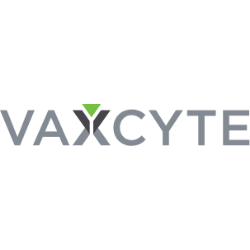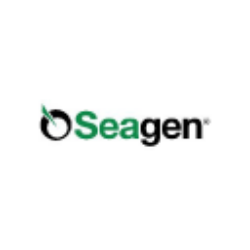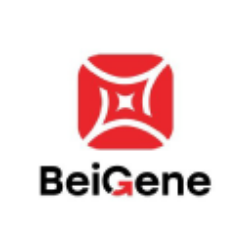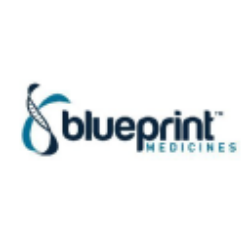TECH

Bio-Techne Corporation
TECH
(2.5)74,89 USD
12.61% ROA
7.36% ROE
69.25x PER
11.698.482.300,00 USD
16.04% DER
0.43% Yield
12.86% NPM
Bio-Techne Corporation Stock Analysis
Bio-Techne Corporation Fundamental Analysis
Fundamental analysis in stock investing is like studying the foundation of a house before buying it. It involves looking at a company's financial health, like its earnings, assets, and debts, to determine if it's a good investment based on its fundamental strength and potential for growth.
| # | Analysis | Rating |
|---|---|---|
| 1 |
ROA
The stock's ability to make a lot of money from its assets shows that it is very profitable, making it a good choice for people who want to invest and make a lot of money. |
|
| 2 |
DER
The stock has a minimal amount of debt (28%) relative to its ownership, showcasing a strong financial position and lower risk for investors. |
|
| 3 |
Assets Growth
This company's revenue has experienced steady growth over the last five years, indicating a reliable and prosperous financial trajectory. |
|
| 4 |
Dividend
Investors can take comfort in the company's unwavering commitment to dividends, as it has consistently distributed payouts over the past five years, ensuring a reliable income stream. |
|
| 5 |
ROE
ROE in an average range (12.85%) suggests satisfactory profitability and decent utilization of shareholders' equity. |
|
| 6 |
Buffet Intrinsic Value
Warren Buffett's formula suggests that the company's stock is undervalued (302), making it an appealing investment prospect with its intrinsic value surpassing the current market price. |
|
| 7 |
PBV
The stock's high Price-to-Book Value (P/BV) ratio (4.83x) suggests it's overvalued, potentially making it an expensive investment. |
|
| 8 |
Revenue Growth
Company has experienced no growth in revenue over the past three years, suggesting limited profitability and making it a less desirable investment opportunity. |
|
| 9 |
Net Profit Growth
This company's net profit has remained flat over the past five years, suggesting a lack of growth and making it a less attractive investment opportunity. |
|
| 10 |
Graham Number
The company's Graham number indicates that it is overvalued compared to its stock price, suggesting a potentially unfavorable investment opportunity. |
|
| 11 |
Dividend Growth
Investors should note the company's stagnant dividend growth over the past three years, indicating limited profitability and potentially diminishing returns. |
Bio-Techne Corporation Technical Analysis
Technical analysis in stock investing is like reading the patterns on a weather map to predict future weather conditions. It involves studying past stock price movements and trading volumes to make predictions about where a stock's price might go next, without necessarily looking at the company's financial health.
| # | Analysis | Recommendation |
|---|---|---|
| 1 | Awesome Oscillator | Buy |
| 2 | MACD | Buy |
| 3 | RSI | Sell |
| 4 | Stoch RSI | Sell |
Bio-Techne Corporation Price Chart
Financial Statements
Financial statements are like report cards for companies. They show how much money a company makes (income statement), what it owns and owes (balance sheet), and where it spends its money (cash flow statement), helping stock investors understand if a company is healthy and worth investing in.
Income Statements
An income statement for a company is like a scoreboard for its profits and losses. It shows how much money the company made (revenue) and how much it spent to make that money (expenses), helping stock investors see if a company is making a profit or not.
Revenue in stock investing is the total amount of money a company earns from its sales, and it's a key factor that investors consider to assess a company's financial performance and growth potential.
| Year | Revenue | Growth |
|---|---|---|
| 1989 | 12.500.000 | |
| 1990 | 15.700.000 | 20.38% |
| 1991 | 19.300.000 | 18.65% |
| 1992 | 22.300.000 | 13.45% |
| 1993 | 28.700.000 | 22.3% |
| 1994 | 40.300.000 | 28.78% |
| 1995 | 47.700.000 | 15.51% |
| 1996 | 54.600.000 | 12.64% |
| 1997 | 60.900.000 | 10.34% |
| 1998 | 67.300.000 | 9.51% |
| 1999 | 90.900.000 | 25.96% |
| 2000 | 103.838.155 | 12.46% |
| 2001 | 115.356.562 | 9.99% |
| 2002 | 130.900.395 | 11.87% |
| 2003 | 145.010.900 | 9.73% |
| 2004 | 161.257.000 | 10.07% |
| 2005 | 178.652.000 | 9.74% |
| 2006 | 202.617.000 | 11.83% |
| 2007 | 223.482.000 | 9.34% |
| 2008 | 257.420.000 | 13.18% |
| 2009 | 263.956.000 | 2.48% |
| 2010 | 269.047.000 | 1.89% |
| 2011 | 289.962.000 | 7.21% |
| 2012 | 314.560.000 | 7.82% |
| 2013 | 310.575.000 | -1.28% |
| 2014 | 357.763.000 | 13.19% |
| 2015 | 452.246.000 | 20.89% |
| 2016 | 499.023.000 | 9.37% |
| 2017 | 563.003.000 | 11.36% |
| 2018 | 642.993.000 | 12.44% |
| 2019 | 714.006.000 | 9.95% |
| 2020 | 738.691.000 | 3.34% |
| 2021 | 931.032.000 | 20.66% |
| 2022 | 1.105.599.000 | 15.79% |
| 2023 | 1.136.702.000 | 2.74% |
| 2024 | 1.159.060.000 | 1.93% |
Research and Development Expenses are the costs a company incurs to create and improve its products or services, which can be important for investors to evaluate a company's innovation and potential for future growth.
| Year | Research and Development Expenses | Growth |
|---|---|---|
| 1989 | 0 | |
| 1990 | 0 | 0% |
| 1991 | 0 | 0% |
| 1992 | 0 | 0% |
| 1993 | 0 | 0% |
| 1994 | 6.500.000 | 100% |
| 1995 | 8.600.000 | 24.42% |
| 1996 | 10.400.000 | 17.31% |
| 1997 | 11.700.000 | 11.11% |
| 1998 | 10.600.000 | -10.38% |
| 1999 | 12.000.000 | 11.67% |
| 2000 | 11.198.309 | -7.16% |
| 2001 | 14.522.233 | 22.89% |
| 2002 | 17.470.267 | 16.87% |
| 2003 | 20.581.343 | 15.12% |
| 2004 | 20.773.000 | 0.92% |
| 2005 | 18.379.000 | -13.03% |
| 2006 | 18.825.000 | 2.37% |
| 2007 | 20.082.000 | 6.26% |
| 2008 | 22.394.000 | 10.32% |
| 2009 | 23.564.000 | 4.97% |
| 2010 | 25.121.000 | 6.2% |
| 2011 | 25.985.000 | 3.32% |
| 2012 | 27.912.000 | 6.9% |
| 2013 | 29.257.000 | 4.6% |
| 2014 | 30.945.000 | 5.45% |
| 2015 | 40.853.000 | 24.25% |
| 2016 | 45.187.000 | 9.59% |
| 2017 | 53.514.000 | 15.56% |
| 2018 | 55.329.000 | 3.28% |
| 2019 | 62.413.000 | 11.35% |
| 2020 | 65.192.000 | 4.26% |
| 2021 | 70.603.000 | 7.66% |
| 2022 | 87.140.000 | 18.98% |
| 2023 | 92.493.000 | 5.79% |
| 2024 | 96.664.000 | 4.31% |
General and Administrative Expenses are the costs a company incurs to run its day-to-day operations, such as office rent, salaries, and utilities, which investors consider to understand a company's overall efficiency and management effectiveness.
| Year | General and Administrative Expenses | Growth |
|---|---|---|
| 1989 | 0 | |
| 1990 | 0 | 0% |
| 1991 | 0 | 0% |
| 1992 | 0 | 0% |
| 1993 | 0 | 0% |
| 1994 | 0 | 0% |
| 1995 | 11.200.000 | 100% |
| 1996 | 13.000.000 | 13.85% |
| 1997 | 14.600.000 | 10.96% |
| 1998 | 15.400.000 | 5.19% |
| 1999 | 16.900.000 | 8.88% |
| 2000 | 17.315.131 | 2.4% |
| 2001 | 17.714.215 | 2.25% |
| 2002 | 19.554.195 | 9.41% |
| 2003 | 19.376.538 | -0.92% |
| 2004 | 21.725.000 | 10.81% |
| 2005 | 24.476.000 | 11.24% |
| 2006 | 27.604.000 | 11.33% |
| 2007 | 30.965.000 | 10.85% |
| 2008 | 36.715.000 | 15.66% |
| 2009 | 33.164.000 | -10.71% |
| 2010 | 32.175.000 | -3.07% |
| 2011 | 35.897.000 | 10.37% |
| 2012 | 41.683.000 | 13.88% |
| 2013 | 43.384.000 | 3.92% |
| 2014 | 60.716.000 | 28.55% |
| 2015 | 119.401.000 | 49.15% |
| 2016 | 140.879.000 | 15.25% |
| 2017 | 153.326.000 | 8.12% |
| 2018 | 240.636.000 | 36.28% |
| 2019 | 236.867.000 | -1.59% |
| 2020 | 240.882.000 | 1.67% |
| 2021 | 289.924.000 | 16.92% |
| 2022 | 339.001.000 | 14.48% |
| 2023 | 352.438.000 | 3.81% |
| 2024 | 396.826.000 | 11.19% |
EBITDA stands for Earnings Before Interest, Taxes, Depreciation, and Amortization. It is a measure that helps stock investors analyze a company's profitability by looking at its earnings without considering certain expenses. This helps to get a clearer picture of the company's financial performance and its ability to generate cash flow.
| Year | EBITDA | Growth |
|---|---|---|
| 1989 | 800.000 | |
| 1990 | 1.800.000 | 55.56% |
| 1991 | 2.700.000 | 33.33% |
| 1992 | 5.100.000 | 47.06% |
| 1993 | 8.200.000 | 37.8% |
| 1994 | 9.400.000 | 12.77% |
| 1995 | 11.100.000 | 15.32% |
| 1996 | 14.100.000 | 21.28% |
| 1997 | 17.600.000 | 19.89% |
| 1998 | 23.500.000 | 25.11% |
| 1999 | 37.000.000 | 36.49% |
| 2000 | 51.996.165 | 28.84% |
| 2001 | 58.543.402 | 11.18% |
| 2002 | 65.506.756 | 10.63% |
| 2003 | 74.071.000 | 11.56% |
| 2004 | 88.313.000 | 16.13% |
| 2005 | 103.871.000 | 14.98% |
| 2006 | 115.458.000 | 10.04% |
| 2007 | 137.008.000 | 15.73% |
| 2008 | 151.546.000 | 9.59% |
| 2009 | 158.546.000 | 4.42% |
| 2010 | 164.576.000 | 3.66% |
| 2011 | 173.681.000 | 5.24% |
| 2012 | 174.662.000 | 0.56% |
| 2013 | 172.983.000 | -0.97% |
| 2014 | 180.567.000 | 4.2% |
| 2015 | 192.932.000 | 6.41% |
| 2016 | 191.993.000 | -0.49% |
| 2017 | 179.358.000 | -7.04% |
| 2018 | 200.603.000 | 10.59% |
| 2019 | 211.891.000 | 5.33% |
| 2020 | 373.908.000 | 43.33% |
| 2021 | 258.472.000 | -44.66% |
| 2022 | 420.116.000 | 38.48% |
| 2023 | 460.565.000 | 8.78% |
| 2024 | 310.371.000 | -48.39% |
Gross profit is the money a company makes from selling its products or services after subtracting the cost of producing or providing them, and it is an important measure for investors to understand a company's profitability.
| Year | Gross Profit | Growth |
|---|---|---|
| 1989 | 6.400.000 | |
| 1990 | 8.400.000 | 23.81% |
| 1991 | 10.400.000 | 19.23% |
| 1992 | 12.700.000 | 18.11% |
| 1993 | 16.900.000 | 24.85% |
| 1994 | 25.100.000 | 32.67% |
| 1995 | 30.900.000 | 18.77% |
| 1996 | 37.500.000 | 17.6% |
| 1997 | 43.900.000 | 14.58% |
| 1998 | 49.500.000 | 11.31% |
| 1999 | 65.900.000 | 24.89% |
| 2000 | 80.509.605 | 18.15% |
| 2001 | 86.931.656 | 7.39% |
| 2002 | 98.392.549 | 11.65% |
| 2003 | 109.614.726 | 10.24% |
| 2004 | 126.370.000 | 13.26% |
| 2005 | 141.839.000 | 10.91% |
| 2006 | 156.899.000 | 9.6% |
| 2007 | 176.815.000 | 11.26% |
| 2008 | 204.531.000 | 13.55% |
| 2009 | 208.468.000 | 1.89% |
| 2010 | 214.584.000 | 2.85% |
| 2011 | 224.937.000 | 4.6% |
| 2012 | 235.804.000 | 4.61% |
| 2013 | 231.110.000 | -2.03% |
| 2014 | 251.411.000 | 8.07% |
| 2015 | 307.277.000 | 18.18% |
| 2016 | 336.659.000 | 8.73% |
| 2017 | 374.541.000 | 10.11% |
| 2018 | 432.143.000 | 13.33% |
| 2019 | 473.491.000 | 8.73% |
| 2020 | 483.194.000 | 2.01% |
| 2021 | 632.850.000 | 23.65% |
| 2022 | 756.496.000 | 16.34% |
| 2023 | 769.815.000 | 1.73% |
| 2024 | 769.725.000 | -0.01% |
Net income in stock investing is like the money a company actually gets to keep as profit after paying all its bills, and it's an important measure to understand how well a company is doing financially.
| Year | Net Profit | Growth |
|---|---|---|
| 1989 | 400.000 | |
| 1990 | 1.000.000 | 60% |
| 1991 | 1.600.000 | 37.5% |
| 1992 | 2.000.000 | 20% |
| 1993 | 4.400.000 | 54.55% |
| 1994 | 5.100.000 | 13.73% |
| 1995 | 6.700.000 | 23.88% |
| 1996 | 8.600.000 | 22.09% |
| 1997 | 10.900.000 | 21.1% |
| 1998 | 15.200.000 | 28.29% |
| 1999 | 16.700.000 | 8.98% |
| 2000 | 26.582.797 | 37.18% |
| 2001 | 34.045.376 | 21.92% |
| 2002 | 27.129.669 | -25.49% |
| 2003 | 45.396.293 | 40.24% |
| 2004 | 52.928.000 | 14.23% |
| 2005 | 66.132.000 | 19.97% |
| 2006 | 73.351.000 | 9.84% |
| 2007 | 85.111.000 | 13.82% |
| 2008 | 103.558.000 | 17.81% |
| 2009 | 105.242.000 | 1.6% |
| 2010 | 109.776.000 | 4.13% |
| 2011 | 112.302.000 | 2.25% |
| 2012 | 112.331.000 | 0.03% |
| 2013 | 112.561.000 | 0.2% |
| 2014 | 110.948.000 | -1.45% |
| 2015 | 107.735.000 | -2.98% |
| 2016 | 104.476.000 | -3.12% |
| 2017 | 77.286.000 | -35.18% |
| 2018 | 125.350.000 | 38.34% |
| 2019 | 96.072.000 | -30.48% |
| 2020 | 229.296.000 | 58.1% |
| 2021 | 140.410.000 | -63.3% |
| 2022 | 272.051.000 | 48.39% |
| 2023 | 285.263.000 | 4.63% |
| 2024 | 168.105.000 | -69.69% |
EPS, or earnings per share, is a measure that shows how much profit a company has earned for each outstanding share of its stock, and it is important for stock investors as it helps understand the profitability of a company and compare it with other companies in the market.
| Year | Earning per Share (EPS) | Growth |
|---|---|---|
| 1989 | 0 | |
| 1990 | 0 | 0% |
| 1991 | 0 | 0% |
| 1992 | 0 | 0% |
| 1993 | 0 | 0% |
| 1994 | 0 | 0% |
| 1995 | 0 | 0% |
| 1996 | 0 | 0% |
| 1997 | 0 | 0% |
| 1998 | 0 | 0% |
| 1999 | 0 | 0% |
| 2000 | 0 | 0% |
| 2001 | 0 | 0% |
| 2002 | 0 | 0% |
| 2003 | 0 | 0% |
| 2004 | 0 | 0% |
| 2005 | 0 | 0% |
| 2006 | 0 | 0% |
| 2007 | 1 | 0% |
| 2008 | 1 | 0% |
| 2009 | 1 | 0% |
| 2010 | 1 | 0% |
| 2011 | 1 | 0% |
| 2012 | 1 | 0% |
| 2013 | 1 | 0% |
| 2014 | 1 | 0% |
| 2015 | 1 | 0% |
| 2016 | 1 | 0% |
| 2017 | 1 | 0% |
| 2018 | 1 | 0% |
| 2019 | 1 | 0% |
| 2020 | 2 | 100% |
| 2021 | 1 | 0% |
| 2022 | 2 | 100% |
| 2023 | 2 | 0% |
| 2024 | 1 | 0% |
Cashflow Statements
Cashflow statements show the movement of money in and out of a company, helping stock investors understand how much money a company makes and spends. By examining cashflow statements, investors can assess if a company is generating enough cash to pay its bills, invest in growth, and provide returns to stockholders.
Free cash flow is the leftover cash that a company generates after covering its operating expenses and capital expenditures, which is important for stock investors as it shows how much money a company has available to invest in growth, pay dividends, or reduce debt.
| Year | Free Cashflow | Growth |
|---|---|---|
| 1990 | 700.000 | |
| 1991 | 900.000 | 22.22% |
| 1992 | 3.300.000 | 72.73% |
| 1993 | 1.900.000 | -73.68% |
| 1994 | 5.000.000 | 62% |
| 1995 | 6.000.000 | 16.67% |
| 1996 | 3.400.000 | -76.47% |
| 1997 | 8.300.000 | 59.04% |
| 1998 | 17.300.000 | 52.02% |
| 1999 | -2.200.000 | 886.36% |
| 2000 | 8.371.541 | 126.28% |
| 2001 | 39.556.758 | 78.84% |
| 2002 | 5.390.965 | -633.76% |
| 2003 | 38.895.139 | 86.14% |
| 2004 | 61.843.000 | 37.11% |
| 2005 | 63.023.000 | 1.87% |
| 2006 | 80.986.000 | 22.18% |
| 2007 | 82.427.000 | 1.75% |
| 2008 | 98.952.000 | 16.7% |
| 2009 | 104.765.000 | 5.55% |
| 2010 | 106.616.000 | 1.74% |
| 2011 | 123.564.000 | 13.72% |
| 2012 | 120.729.000 | -2.35% |
| 2013 | 101.108.000 | -19.41% |
| 2014 | 122.941.000 | 17.76% |
| 2015 | 119.454.000 | -2.92% |
| 2016 | 126.972.000 | 5.92% |
| 2017 | 128.269.000 | 1.01% |
| 2018 | 149.433.000 | 14.16% |
| 2019 | 156.208.000 | 4.34% |
| 2020 | 153.473.000 | -1.78% |
| 2021 | 307.863.000 | 50.15% |
| 2022 | 280.364.000 | -9.81% |
| 2023 | 216.149.000 | -29.71% |
| 2024 | 57.516.000 | -275.81% |
Operating cash flow represents the cash generated or consumed by a company's day-to-day operations, excluding external investing or financing activities, and is crucial for stock investors as it shows how much cash a company is generating from its core business operations.
| Year | Operating Cashflow | Growth |
|---|---|---|
| 1990 | 1.100.000 | |
| 1991 | 1.800.000 | 38.89% |
| 1992 | 3.900.000 | 53.85% |
| 1993 | 4.500.000 | 13.33% |
| 1994 | 6.300.000 | 28.57% |
| 1995 | 7.300.000 | 13.7% |
| 1996 | 9.800.000 | 25.51% |
| 1997 | 12.500.000 | 21.6% |
| 1998 | 20.300.000 | 38.42% |
| 1999 | 28.400.000 | 28.52% |
| 2000 | 38.739.403 | 26.69% |
| 2001 | 46.371.711 | 16.46% |
| 2002 | 27.667.227 | -67.61% |
| 2003 | 54.088.895 | 48.85% |
| 2004 | 65.553.000 | 17.49% |
| 2005 | 74.433.000 | 11.93% |
| 2006 | 85.589.000 | 13.03% |
| 2007 | 90.503.000 | 5.43% |
| 2008 | 115.317.000 | 21.52% |
| 2009 | 111.321.000 | -3.59% |
| 2010 | 111.260.000 | -0.05% |
| 2011 | 127.194.000 | 12.53% |
| 2012 | 126.746.000 | -0.35% |
| 2013 | 123.562.000 | -2.58% |
| 2014 | 136.762.000 | 9.65% |
| 2015 | 139.359.000 | 1.86% |
| 2016 | 143.870.000 | 3.14% |
| 2017 | 143.448.000 | -0.29% |
| 2018 | 170.367.000 | 15.8% |
| 2019 | 181.619.000 | 6.2% |
| 2020 | 205.217.000 | 11.5% |
| 2021 | 352.164.000 | 41.73% |
| 2022 | 325.272.000 | -8.27% |
| 2023 | 254.393.000 | -27.86% |
| 2024 | 75.496.000 | -236.96% |
Capex, short for capital expenditures, refers to the money a company spends on acquiring or upgrading tangible assets like buildings, equipment, or technology, which is important for stock investors as it indicates how much a company is investing in its infrastructure to support future growth and profitability.
| Year | Capital Expenditure | Growth |
|---|---|---|
| 1990 | 400.000 | |
| 1991 | 900.000 | 55.56% |
| 1992 | 600.000 | -50% |
| 1993 | 2.600.000 | 76.92% |
| 1994 | 1.300.000 | -100% |
| 1995 | 1.300.000 | 0% |
| 1996 | 6.400.000 | 79.69% |
| 1997 | 4.200.000 | -52.38% |
| 1998 | 3.000.000 | -40% |
| 1999 | 30.600.000 | 90.2% |
| 2000 | 30.367.862 | -0.76% |
| 2001 | 6.814.953 | -345.61% |
| 2002 | 22.276.262 | 69.41% |
| 2003 | 15.193.756 | -46.61% |
| 2004 | 3.710.000 | -309.54% |
| 2005 | 11.410.000 | 67.48% |
| 2006 | 4.603.000 | -147.88% |
| 2007 | 8.076.000 | 43% |
| 2008 | 16.365.000 | 50.65% |
| 2009 | 6.556.000 | -149.62% |
| 2010 | 4.644.000 | -41.17% |
| 2011 | 3.630.000 | -27.93% |
| 2012 | 6.017.000 | 39.67% |
| 2013 | 22.454.000 | 73.2% |
| 2014 | 13.821.000 | -62.46% |
| 2015 | 19.905.000 | 30.57% |
| 2016 | 16.898.000 | -17.8% |
| 2017 | 15.179.000 | -11.32% |
| 2018 | 20.934.000 | 27.49% |
| 2019 | 25.411.000 | 17.62% |
| 2020 | 51.744.000 | 50.89% |
| 2021 | 44.301.000 | -16.8% |
| 2022 | 44.908.000 | 1.35% |
| 2023 | 38.244.000 | -17.42% |
| 2024 | 17.980.000 | -112.7% |
Balance Sheet
Balance sheets provide a snapshot of a company's financial health and its assets (such as cash, inventory, and property) and liabilities (like debts and obligations) at a specific point in time. For stock investors, balance sheets help assess the company's overall worth and evaluate its ability to meet financial obligations and support future growth.
Equity refers to the ownership interest or stake that shareholders have in a company, representing their claim on its assets and earnings after all debts and liabilities are paid.
| Year | Equity | Growth |
|---|---|---|
| 1989 | 3.100.000 | |
| 1990 | 4.600.000 | 32.61% |
| 1991 | 6.300.000 | 26.98% |
| 1992 | 11.200.000 | 43.75% |
| 1993 | 17.800.000 | 37.08% |
| 1994 | 23.000.000 | 22.61% |
| 1995 | 29.500.000 | 22.03% |
| 1996 | 38.900.000 | 24.16% |
| 1997 | 48.100.000 | 19.13% |
| 1998 | 63.800.000 | 24.61% |
| 1999 | 96.800.000 | 34.09% |
| 2000 | 141.145.378 | 31.42% |
| 2001 | 177.660.268 | 20.55% |
| 2002 | 206.516.783 | 13.97% |
| 2003 | 236.617.194 | 12.72% |
| 2004 | 297.425.000 | 20.44% |
| 2005 | 267.869.000 | -11.03% |
| 2006 | 340.348.000 | 21.3% |
| 2007 | 437.651.000 | 22.23% |
| 2008 | 487.130.000 | 10.16% |
| 2009 | 456.482.000 | -6.71% |
| 2010 | 501.792.000 | 9.03% |
| 2011 | 586.122.000 | 14.39% |
| 2012 | 674.442.000 | 13.1% |
| 2013 | 737.541.000 | 8.56% |
| 2014 | 795.265.000 | 7.26% |
| 2015 | 846.935.000 | 6.1% |
| 2016 | 879.280.000 | 3.68% |
| 2017 | 950.827.000 | 7.52% |
| 2018 | 1.079.145.000 | 11.89% |
| 2019 | 1.165.589.000 | 7.42% |
| 2020 | 1.381.192.000 | 15.61% |
| 2021 | 1.579.497.000 | 12.55% |
| 2022 | 1.700.252.000 | 7.1% |
| 2023 | 1.966.516.000 | 13.54% |
| 2024 | 2.068.850.000 | 4.95% |
Assets represent the valuable resources that a company owns, such as cash, inventory, property, and equipment, and understanding a company's assets helps investors assess its value and potential for generating future profits.
| Year | Assets | Growth |
|---|---|---|
| 1989 | 6.100.000 | |
| 1990 | 8.000.000 | 23.75% |
| 1991 | 9.600.000 | 16.67% |
| 1992 | 15.700.000 | 38.85% |
| 1993 | 20.400.000 | 23.04% |
| 1994 | 26.800.000 | 23.88% |
| 1995 | 34.100.000 | 21.41% |
| 1996 | 44.400.000 | 23.2% |
| 1997 | 53.900.000 | 17.63% |
| 1998 | 72.900.000 | 26.06% |
| 1999 | 123.800.000 | 41.11% |
| 2000 | 180.409.581 | 31.38% |
| 2001 | 215.525.113 | 16.29% |
| 2002 | 238.246.959 | 9.54% |
| 2003 | 263.277.128 | 9.51% |
| 2004 | 325.460.000 | 19.11% |
| 2005 | 295.263.000 | -10.23% |
| 2006 | 370.512.000 | 20.31% |
| 2007 | 454.844.000 | 18.54% |
| 2008 | 507.369.000 | 10.35% |
| 2009 | 472.005.000 | -7.49% |
| 2010 | 518.816.000 | 9.02% |
| 2011 | 617.670.000 | 16% |
| 2012 | 719.324.000 | 14.13% |
| 2013 | 778.098.000 | 7.55% |
| 2014 | 862.491.000 | 9.78% |
| 2015 | 1.063.360.000 | 18.89% |
| 2016 | 1.129.507.000 | 5.86% |
| 2017 | 1.556.653.000 | 27.44% |
| 2018 | 1.593.202.000 | 2.29% |
| 2019 | 1.884.410.000 | 15.45% |
| 2020 | 2.027.589.000 | 7.06% |
| 2021 | 2.262.957.000 | 10.4% |
| 2022 | 2.294.805.000 | 1.39% |
| 2023 | 2.638.692.000 | 13.03% |
| 2024 | 2.813.190.000 | 6.2% |
Liabilities refer to the financial obligations or debts that a company owes to creditors or external parties, and understanding a company's liabilities is important for investors as it helps assess the company's financial risk and ability to meet its obligations.
| Year | Liabilities | Growth |
|---|---|---|
| 1989 | 3.000.000 | |
| 1990 | 3.400.000 | 11.76% |
| 1991 | 3.300.000 | -3.03% |
| 1992 | 4.500.000 | 26.67% |
| 1993 | 2.600.000 | -73.08% |
| 1994 | 3.800.000 | 31.58% |
| 1995 | 4.600.000 | 17.39% |
| 1996 | 5.500.000 | 16.36% |
| 1997 | 5.800.000 | 5.17% |
| 1998 | 9.100.000 | 36.26% |
| 1999 | 27.000.000 | 66.3% |
| 2000 | 39.264.203 | 31.24% |
| 2001 | 37.864.845 | -3.7% |
| 2002 | 31.730.176 | -19.33% |
| 2003 | 26.659.934 | -19.02% |
| 2004 | 28.035.000 | 4.9% |
| 2005 | 27.394.000 | -2.34% |
| 2006 | 30.164.000 | 9.18% |
| 2007 | 17.193.000 | -75.44% |
| 2008 | 20.239.000 | 15.05% |
| 2009 | 15.523.000 | -30.38% |
| 2010 | 17.024.000 | 8.82% |
| 2011 | 31.548.000 | 46.04% |
| 2012 | 44.882.000 | 29.71% |
| 2013 | 40.557.000 | -10.66% |
| 2014 | 67.226.000 | 39.67% |
| 2015 | 216.425.000 | 68.94% |
| 2016 | 250.227.000 | 13.51% |
| 2017 | 605.826.000 | 58.7% |
| 2018 | 514.057.000 | -17.85% |
| 2019 | 718.821.000 | 28.49% |
| 2020 | 646.397.000 | -11.2% |
| 2021 | 691.723.000 | 6.55% |
| 2022 | 593.794.000 | -16.49% |
| 2023 | 672.176.000 | 11.66% |
| 2024 | 744.340.000 | 9.7% |
Bio-Techne Corporation Financial Ratio (TTM)
Valuation Metrics
- Revenue per Share
- 7.34
- Net Income per Share
- 1.06
- Price to Earning Ratio
- 69.25x
- Price To Sales Ratio
- 10.09x
- POCF Ratio
- 38.94
- PFCF Ratio
- 49.55
- Price to Book Ratio
- 5.63
- EV to Sales
- 10.32
- EV Over EBITDA
- 33.59
- EV to Operating CashFlow
- 40.02
- EV to FreeCashFlow
- 50.68
- Earnings Yield
- 0.01
- FreeCashFlow Yield
- 0.02
- Market Cap
- 11,70 Bil.
- Enterprise Value
- 11,97 Bil.
- Graham Number
- 17.72
- Graham NetNet
- -2.03
Income Statement Metrics
- Net Income per Share
- 1.06
- Income Quality
- 1.78
- ROE
- 0.08
- Return On Assets
- 0.06
- Return On Capital Employed
- 0.09
- Net Income per EBT
- 0.85
- EBT Per Ebit
- 0.77
- Ebit per Revenue
- 0.2
- Effective Tax Rate
- 0.15
Margins
- Sales, General, & Administrative to Revenue
- 0
- Research & Developement to Revenue
- 0.08
- Stock Based Compensation to Revenue
- 0.03
- Gross Profit Margin
- 0.66
- Operating Profit Margin
- 0.2
- Pretax Profit Margin
- 0.15
- Net Profit Margin
- 0.13
Dividends
- Dividend Yield
- 0
- Dividend Yield %
- 0.43
- Payout Ratio
- 0.3
- Dividend Per Share
- 0.32
Operating Metrics
- Operating Cashflow per Share
- 1.89
- Free CashFlow per Share
- 1.5
- Capex to Operating CashFlow
- 0.21
- Capex to Revenue
- 0.05
- Capex to Depreciation
- 0.56
- Return on Invested Capital
- 0.09
- Return on Tangible Assets
- 0.13
- Days Sales Outstanding
- 76.02
- Days Payables Outstanding
- 35.79
- Days of Inventory on Hand
- 169.44
- Receivables Turnover
- 4.8
- Payables Turnover
- 10.2
- Inventory Turnover
- 2.15
- Capex per Share
- 0.4
Balance Sheet
- Cash per Share
- 0,97
- Book Value per Share
- 13,10
- Tangible Book Value per Share
- 3.73
- Shareholders Equity per Share
- 13.1
- Interest Debt per Share
- 2.2
- Debt to Equity
- 0.16
- Debt to Assets
- 0.12
- Net Debt to EBITDA
- 0.75
- Current Ratio
- 3.87
- Tangible Asset Value
- 0,59 Bil.
- Net Current Asset Value
- -0,13 Bil.
- Invested Capital
- 2280223000
- Working Capital
- 0,46 Bil.
- Intangibles to Total Assets
- 0.53
- Average Receivables
- 0,23 Bil.
- Average Payables
- 0,03 Bil.
- Average Inventory
- 179613500
- Debt to Market Cap
- 0.03
Dividends
Dividends in stock investing are like rewards that companies give to their shareholders. They are a portion of the company's profits distributed to investors, typically in the form of cash payments, as a way for them to share in the company's success.
| Year | Dividends | Growth |
|---|---|---|
| 2008 | 0 | |
| 2009 | 1 | 100% |
| 2010 | 1 | 0% |
| 2011 | 1 | 0% |
| 2012 | 1 | 0% |
| 2013 | 1 | 0% |
| 2014 | 1 | 0% |
| 2015 | 1 | 0% |
| 2016 | 1 | 0% |
| 2017 | 1 | 0% |
| 2018 | 1 | 0% |
| 2019 | 1 | 0% |
| 2020 | 1 | 0% |
| 2021 | 1 | 0% |
| 2022 | 1 | 0% |
| 2023 | 0 | 0% |
| 2024 | 0 | 0% |
Bio-Techne Corporation Profile
About Bio-Techne Corporation
Bio-Techne Corporation, together with its subsidiaries, develops, manufactures, and sells life science reagents, instruments, and services for the research and clinical diagnostic markets worldwide. The company operates through two segments, Protein Sciences, and Diagnostics and Genomics. The Protein Sciences segment develops and manufactures biological reagents used in various aspects of life science research, diagnostics, and cell and gene therapy, such as cytokines and growth factors, antibodies, small molecules, tissue culture sera, and cell selection technologies. This segment also offers proteomic analytical tools for automated western blot and multiplexed ELISA workflow consists of manual and automated protein analysis instruments and immunoassays for use in quantifying proteins in various biological fluids. The Diagnostics and Genomics segment develops and manufactures diagnostic products, including controls, calibrators, and diagnostic assays for regulated diagnostics market, exosome-based molecular diagnostic assays, advanced tissue-based in-situ hybridization assays for spatial genomic and tissue biopsy analysis, and genetic and oncology kits for research and clinical applications; and sells products for genetic carrier screening, oncology diagnostics, molecular controls, and research, as well as instruments and process control products for hematology, blood chemistry and gases, and coagulation controls and reagents used in various diagnostic applications. It offers its products under R&D Systems, Tocris Biosciences, Novus Biologicals, ProteinSimple, Advanced Cell Diagnostics, Exosome Diagnostics, and Asuragen brands. The company was formerly known as Techne Corporation and changed its name to Bio-Techne Corporation in November 2014. Bio-Techne Corporation was founded in 1976 and is headquartered in Minneapolis, Minnesota.
- CEO
- Mr. Kim Kelderman
- Employee
- 3.100
- Address
-
614 McKinley Place N.E.
Minneapolis, 55413
Bio-Techne Corporation Executives & BODs
| # | Name | Age |
|---|---|---|
| 1 |
Dr. Matthew F. McManus M.D., MBA, Ph.D. President of Diagnostics & Genomics |
70 |
| 2 |
Dr. Gary J. Latham Ph.D. Vice President & Chief Technology Officer |
70 |
| 3 |
Mr. Shane Bohnen Senior Vice President, General Counsel, Corporate Secretary & Chief Sustainability Officer |
70 |
| 4 |
Mr. David Clair C.F.A. Senior Director of Investor Relations & Corporate Development |
70 |
| 5 |
Ms. Cheryl Bethune Senior Vice President & Chief Human Resources Officer |
70 |
| 6 |
Mr. James T. Hippel CPA Executive Vice President of Finance & Chief Financial Officer |
70 |
| 7 |
Mr. Gerry Andros Vice President of Sales and Marketing |
70 |
| 8 |
Mr. Martin Wirtz Senior Vice President of Strategy & Corporate Development |
70 |
| 9 |
Mr. Kim Kelderman Chief Executive Officer, President & Director |
70 |
| 10 |
Mr. William A. Geist President of Protein Sciences Segment |
70 |

